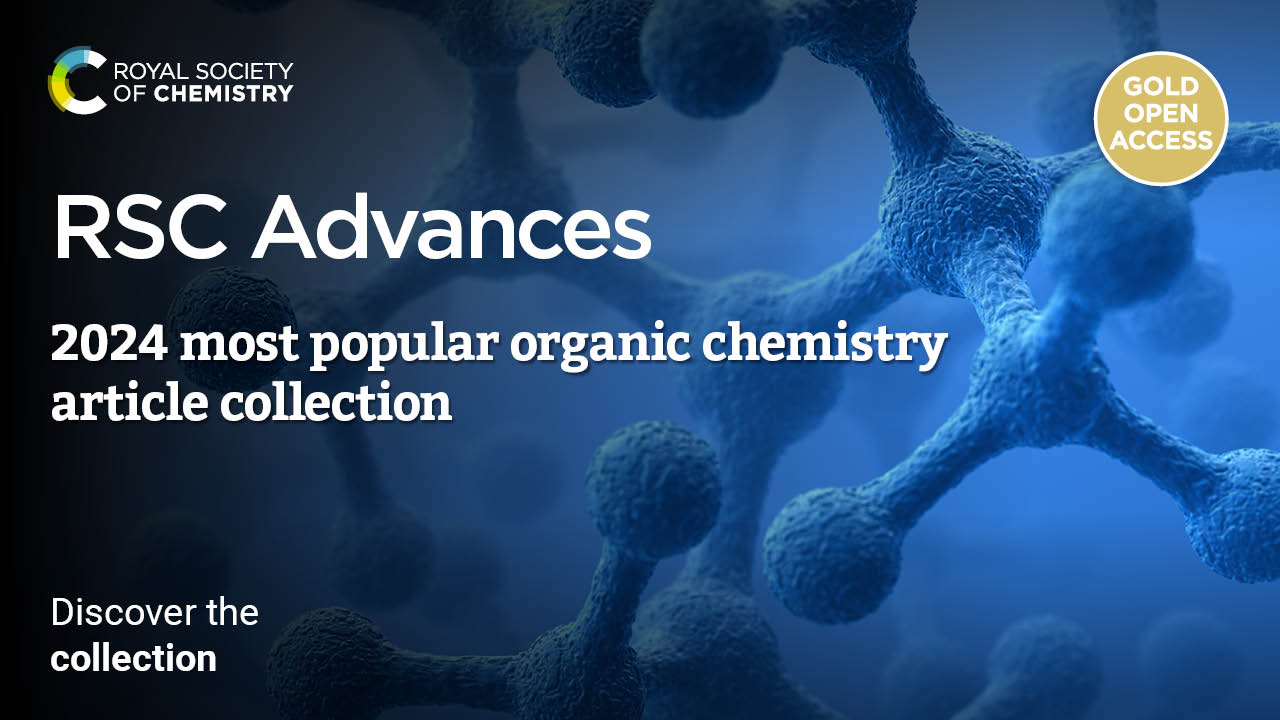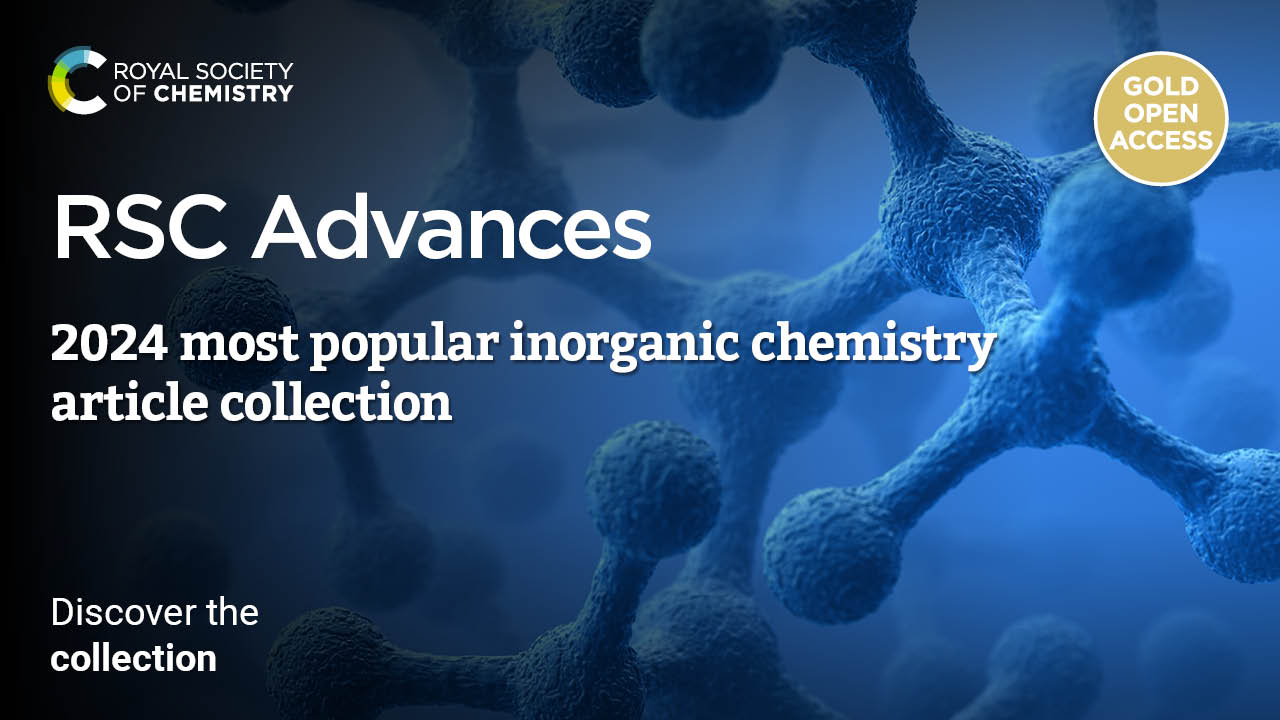RSC Advances is delighted to present a themed collection on 2D materials and their applications.
This themed collection collects and compiles research articles and reviews focused on characterising the structural and physiochemical properties of 2D materials. The collection aims to investigate the applications of 2D materials in various fields of fundamental and applied research, with an emphasis on the development of new 2D nanomaterials.
This collection is Guest Edited by Andreas Rosenkranz (University of Chile, Chile), Massimiliano Papi (Catholic University of the Sacred Heart, Italy), Jastrzębska Agnieszka (Warsaw University of Technology, Poland) and Diana Berman (University of North Texas, United States of America),
A selection of articles have been highlighted below, and you can view the full collection here.
Carbon-based nanocomposites for biomedical applications
Minkyu Shin, Joungpyo Lim, Yongseon Park, Ji-Young Lee, Jinho Yoon and Jeong-Woo Choi
RSC Adv., 2024,14, 7142-7156
Graphene-like emerging 2D materials: recent progress, challenges and future outlook
Md. Mohi Uddin, Mohammad Humaun Kabir, Md. Ashraf Ali, Md. Mukter Hossain, Mayeen Uddin Khandaker, Sumit Mandal, A. Arifutzzamane and Debnarayan Jana
RSC Adv., 2023,13, 33336-33375
Fabrication of a free-standing Ti3C2Tx-PTh counter electrode via interfacial polymerization for dye-sensitized solar cells
Suruthi Priya Nagalingam, Saravanan Pandiaraj, Khalid E. Alzahrani, Abdullah. N. Alodhay and Andrews Nirmala Grace
RSC Adv., 2024,14, 24000-24009
Water adsorption on MoS2 under realistic atmosphere conditions and impacts on tribology
N. Scott Bobbitt, John F. Curry, Tomas F. Babuska and Michael Chandross
RSC Adv., 2024,14, 4717-4729
View the full collection here
We welcome you to contribute to this collection. Please contact the Editorial Office to highlight your interest in submitting to this collection.

Submit to RSC Advances today! Check out our author guidelines for information on our article types or find out more about the advantages of publishing in a Royal Society of Chemistry journal.
Keep up to date with our latest Popular Advances, Reviews, Collections & more by following us on bluesky @rscadvaces.rsc.org. You can also keep informed by signing up to our E-Alerts.


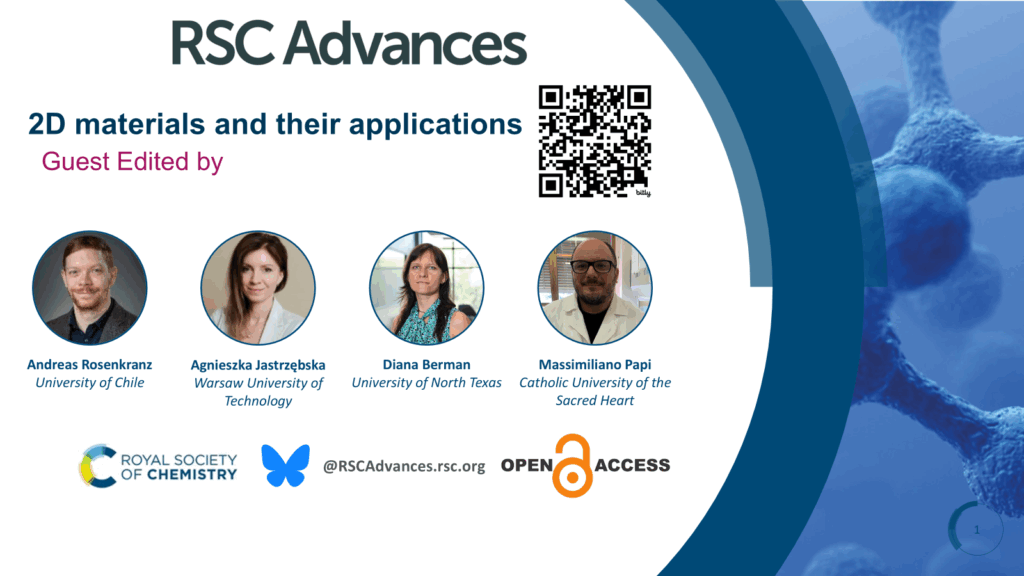










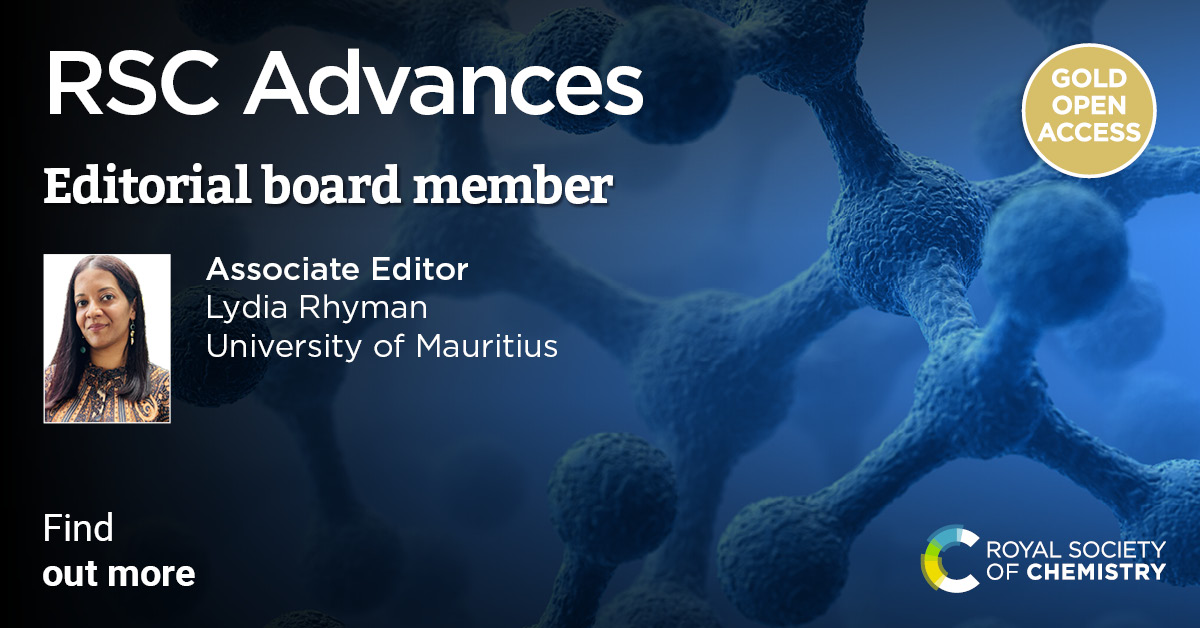




 Tracking changes inside cells is essential for understanding both normal biological functions and disease processes. Fluorescent probes are valuable tools for this purpose, offering advantages over genetically encoded alternatives. Despite significant advances in organelle-specific probes, several challenges persist. This work highlights key design strategies for such probes, including cellular uptake mechanisms and the interplay between the properties of the target organelle and the physicochemical characteristics of the probe. Additionally, it showcases recent advancements and addresses current challenges in the development of organelle-targeted fluorescent probes.
Tracking changes inside cells is essential for understanding both normal biological functions and disease processes. Fluorescent probes are valuable tools for this purpose, offering advantages over genetically encoded alternatives. Despite significant advances in organelle-specific probes, several challenges persist. This work highlights key design strategies for such probes, including cellular uptake mechanisms and the interplay between the properties of the target organelle and the physicochemical characteristics of the probe. Additionally, it showcases recent advancements and addresses current challenges in the development of organelle-targeted fluorescent probes.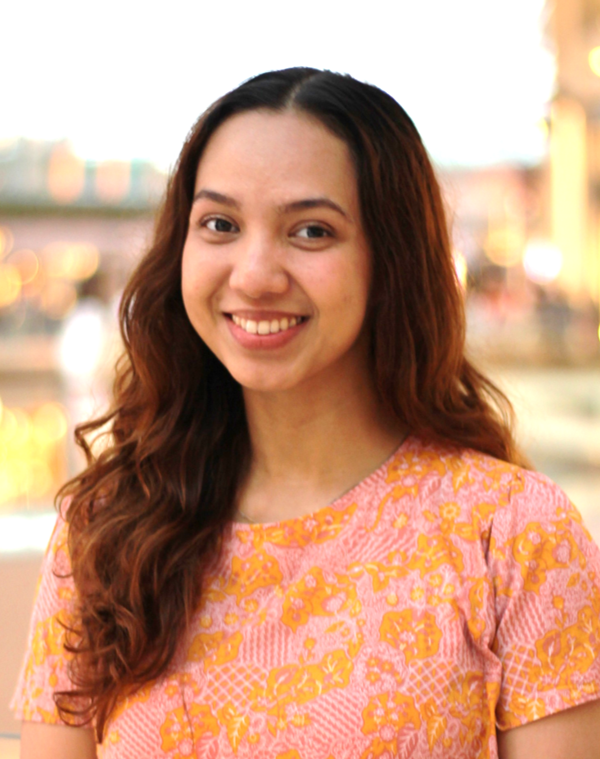 After completing her BSc at Universitas Indonesia (UI), Samira Husen Alamudi received her PhD in chemistry from the National University of Singapore (NUS) in 2015 under the supervision of Prof. Young-Tae Chang. She then pursued postdoctoral studies at NUS and later worked as a Research Fellow at the Agency for Science, Technology and Research (A*STAR), Singapore, with Prof. Young-Tae Chang and Prof. Ichiro Hirao until 2021. She subsequently worked in the biotechnology industry before joining UI in 2023, where she is currently an assistant professor. Her research interests include the development of small fluorescent probes for monitoring intracellular dynamics in native cellular environments.
After completing her BSc at Universitas Indonesia (UI), Samira Husen Alamudi received her PhD in chemistry from the National University of Singapore (NUS) in 2015 under the supervision of Prof. Young-Tae Chang. She then pursued postdoctoral studies at NUS and later worked as a Research Fellow at the Agency for Science, Technology and Research (A*STAR), Singapore, with Prof. Young-Tae Chang and Prof. Ichiro Hirao until 2021. She subsequently worked in the biotechnology industry before joining UI in 2023, where she is currently an assistant professor. Her research interests include the development of small fluorescent probes for monitoring intracellular dynamics in native cellular environments.
